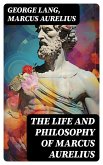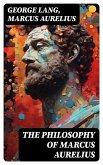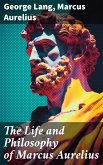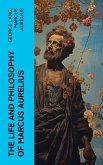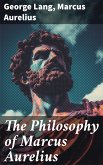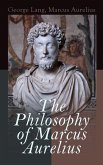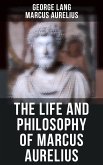In 'The Philosophical Works of Marcus Aurelius', George Lang presents a seminal collection that serves not only as a biographical account of the esteemed Roman Emperor but also as an exploration of his introspective musings. Penetrating the core of Stoic philosophy, Lang meticulously curates Aurelius's 'Meditations', a corpus originally composed in Greek that offers an enduring testament to self-guidance and personal betterment. Despite the absence of the original title, Lang's translation and commentary honor the emperor's intent, showcasing a majestic literary style that resonates with contemporary audiences while remaining faithful to its classical roots, thereby enriching its historical and literary context. George Lang's erudition is palpable as he delves into the life and philosophy of Marcus Aurelius, whose reign was marked by wisdom and the embodiment of Stoic virtue. Lang's own academic credentials undoubtedly inform his treatment of the material, synthesizing biography with philosophical exposition seamlessly. His profound understanding of Stoicism, coupled with a commitment to historical scholarship, positions this work as a pivotal resource for those who seek to comprehend the intricate relationship between leadership, morality, and inner discipline as championed by one of antiquity's most revered figures. 'The Philosophical Works of Marcus Aurelius' is essential reading not only for students of philosophy but also for anyone intrigued by the intersection of power and introspection. Lang's analytical prowess guides readers through a reflective journey that is as relevant today as it was during the heyday of the Roman Empire. Both scholars and lay readers will find in this book an invaluable companion for navigating the complexities of ethical leadership and personal growth, making it an unmissable addition to the libraries of the philosophically inclined and historically curious alike.
Dieser Download kann aus rechtlichen Gründen nur mit Rechnungsadresse in A, B, BG, CY, CZ, D, DK, EW, E, FIN, F, GR, H, IRL, I, LT, L, LR, M, NL, PL, P, R, S, SLO, SK ausgeliefert werden.



